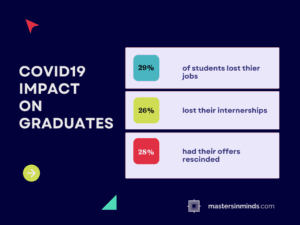The Other Side of the Glass
The Great Resignation has led to a mainstream belief that society has switched from an employer’s to an employee’s market. However, as Generation Z are beginning to enter the post-pandemic job market, it is unlikely they share the same sentiment.
The Covid-19 pandemic, regarding the labour market, hit young people the hardest. Whilst unemployment levels slowly increased in 2020, the employment of young people continued to decline. This is especially pertinent regarding graduate positions where an 80% decline in jobs is estimated compared to pre-Covid.
Resultantly, those who graduated in 2020 had fewer job opportunities, with a further 29% of students losing jobs they had, 26% losing internships and 28% having offers rescinded. This has subsequently created a backlog of graduates meaning those who left university the following year were now competing against 2020 graduates as well as each other. This is supported by data from EY where Hywel Ball stated graduate applications had increased by 60% compared to 2019.
Not only are there clearly fewer opportunities than pre-covid, but there are also several issues with the recruitment processes that have been described as tedious, arduous, and increasingly complex. Research suggests that most employers do not even respond to applications leaving graduates stressed, anxious and awaiting news that will never arrive. Furthermore, the recruitment processes tend to be extremely lengthy with ‘some…taking almost 100 days’ according to an MBA graduate speaking to the FT.
We interviewed graduates who have experienced far longer waiting periods. One graduate currently being in the seventh month of a recruitment process having completed the last ‘assessment’ over five months ago still being told, ‘we are still processing your application’.
It is unsurprising that these organisations are struggling to retain talent. Whilst these university graduates are desperate to get into a graduate scheme right now, putting aside the dramas of the recruitment process once the job offer comes in, they will remember the bitter taste left in their mouths by such companies.
In their quest to recruit talent in the short-term, could organisations be inadvertently contributing to their own high employee turnover in the long term?





































